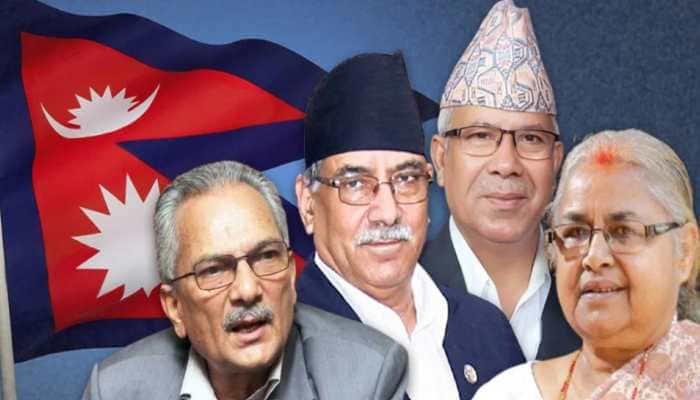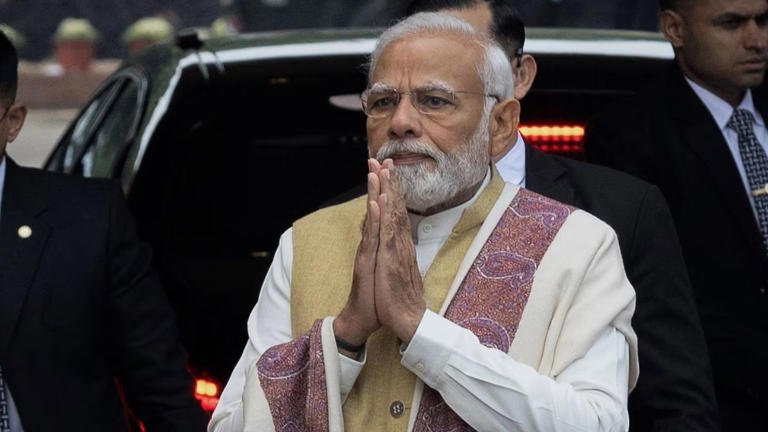Nepal PM Sushila Karki Appoints Three Ministers with Strong India Links – Here’s Who They Are
Nepal’s political landscape witnessed a significant development this week as Prime Minister Sushila Karki inducted three new ministers into her cabinet, all of whom share notable ties with India. The move is being closely watched in Kathmandu and New Delhi alike, as it may redefine the contours of Nepal’s domestic politics and bilateral relations with India.
This reshuffle, which comes amid debates over constitutional reforms and economic challenges, is seen as an attempt by PM Karki to strike a balance between domestic coalition management and foreign policy imperatives. By appointing figures who enjoy goodwill in New Delhi, the Prime Minister is signaling a pragmatic approach to navigating Nepal’s often complex ties with its southern neighbor.
Why the Cabinet Expansion Matters
India remains Nepal’s largest trade partner and a key source of investment, energy cooperation, and infrastructure support. Despite occasional strains—such as disputes over borders, hydropower projects, or constitutional provisions—Nepal and India share centuries-old cultural, religious, and economic links. Any move involving ministers with Indian connections naturally attracts attention, given the implications for bilateral cooperation.
For PM Karki, the induction of these ministers serves multiple purposes. Firstly, it strengthens her coalition government, which relies on the support of diverse political factions. Secondly, it reassures New Delhi that Nepal is open to deeper engagement at a time when China’s influence in the Himalayan nation has grown significantly.
Let’s take a closer look at the three new appointees and their India connections.
1. Ramesh Thapa – Minister of Energy, Water Resources, and Irrigation
Ramesh Thapa, a senior leader from the ruling party’s eastern faction, is well known for his experience in the hydropower sector. He previously served as chairman of a Nepal-India joint venture hydropower board and has long advocated cross-border energy cooperation.
Thapa’s appointment is significant because Nepal’s hydropower potential remains largely untapped, and India is a natural market for its surplus electricity. His close association with Indian policymakers, particularly through his role in energy dialogues over the past decade, positions him as a bridge between the two countries.
Analysts believe Thapa’s leadership could accelerate projects like the Arun-III and Upper Karnali hydropower ventures, both of which involve Indian companies. His pragmatic stance on energy trade is expected to benefit Nepal’s economy while also reducing its trade deficit with India.
2. Anita Sharma – Minister of Tourism, Culture, and Civil Aviation
Tourism is the backbone of Nepal’s economy, and Anita Sharma’s appointment underscores PM Karki’s focus on reviving this vital sector after pandemic-era setbacks. Sharma, who studied at Delhi University and worked with several Indo-Nepal business chambers, has cultivated strong professional and personal links with Indian stakeholders.
Her emphasis on “religious and cultural tourism” resonates with India’s large pool of travelers who visit Nepal for pilgrimages to sites like Pashupatinath, Muktinath, and Lumbini. With direct air connectivity between several Indian cities and Kathmandu, Sharma’s ministry is expected to push for expanded aviation ties and joint promotional campaigns targeting Indian tourists.
Moreover, Sharma is known for advocating visa relaxations and simplified cross-border travel arrangements. Her efforts could bring a fresh momentum to Nepal’s tourism sector while deepening cultural exchanges with India.
3. Prakash Jha – Minister of Commerce and Industry
Prakash Jha, hailing from Nepal’s Terai region, has long been regarded as a politician with deep roots in cross-border trade. Fluent in Hindi and Maithili, Jha enjoys close ties with political leaders in India’s Bihar and Uttar Pradesh. His appointment is viewed as a strategic move to strengthen economic linkages.
As Minister of Commerce and Industry, Jha faces the challenge of addressing Nepal’s ballooning trade deficit with India. However, his longstanding relationships with Indian business associations and his track record of facilitating trade agreements could prove crucial.
Jha has already signaled his intent to renegotiate certain trade barriers, promote Nepali exports like tea, coffee, and handicrafts, and streamline customs procedures at the Indo-Nepal border. Observers say his regional understanding could help reduce friction and boost cooperation at a grassroots level.
Reactions from New Delhi and Kathmandu
The appointments have generated positive signals from India. Officials in New Delhi have welcomed the move, noting that the three ministers bring credibility and a spirit of partnership. Indian business lobbies, especially in the energy and tourism sectors, have expressed optimism about enhanced collaboration.
Within Nepal, the response has been mixed. Supporters of PM Karki argue that these ministers will help attract investment and revive growth. Critics, however, caution that overemphasizing ties with India could be politically risky, especially among groups wary of foreign influence. The opposition has already accused the Prime Minister of “tilting too much” towards New Delhi.
What This Means for Nepal-India Relations
Nepal has long sought to maintain a delicate balance between India and China. In recent years, Beijing’s investments in infrastructure, transport, and digital connectivity have expanded its footprint in the country. Against this backdrop, PM Karki’s decision to induct ministers with Indian links could be read as an effort to reassure New Delhi that Nepal values its traditional partnership.
If these ministers deliver on their promises—whether in energy exports, boosting tourism, or trade facilitation—Nepal’s economy could see tangible benefits. At the same time, the appointments could help reduce tensions and foster a climate of trust between the two countries.
Prime Minister Sushila Karki’s decision to appoint three ministers with strong India connections marks an important chapter in Nepal’s political journey. While the move strengthens her coalition and reassures New Delhi, it also raises questions about balancing domestic politics with foreign relations.
Ramesh Thapa’s expertise in hydropower, Anita Sharma’s focus on tourism, and Prakash Jha’s trade diplomacy together represent an ambitious strategy to unlock Nepal’s economic potential with India’s support. Whether this reshuffle leads to long-term gains will depend on how effectively these ministers translate their India ties into concrete policies that benefit ordinary Nepalis.
For now, the cabinet expansion reflects a pragmatic recognition: Nepal’s prosperity is closely linked to how well it manages its relationship with its closest neighbor





